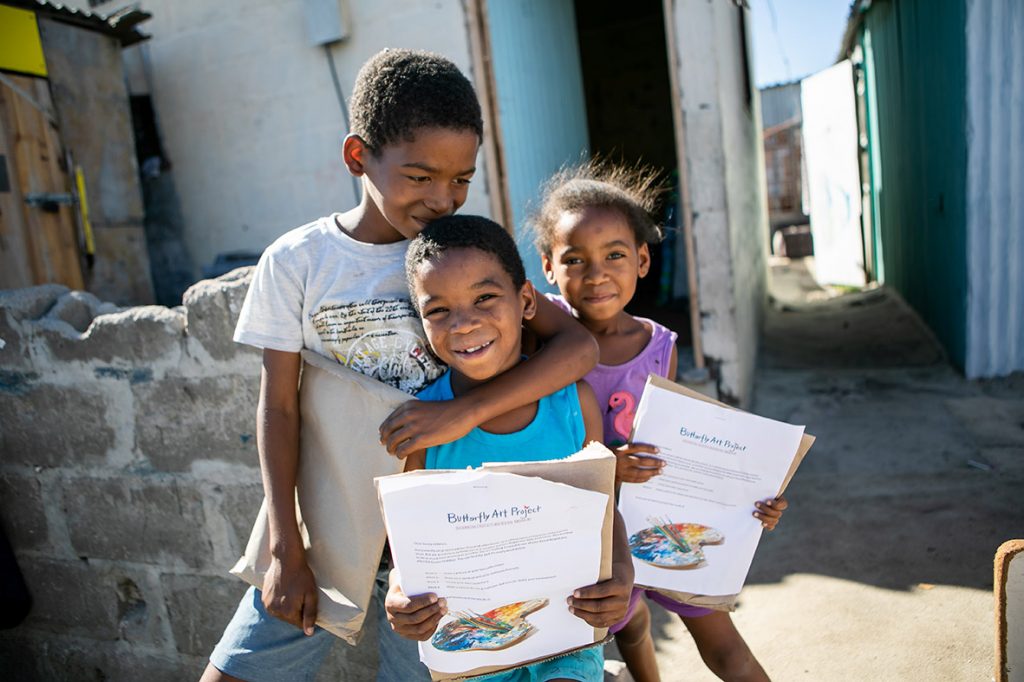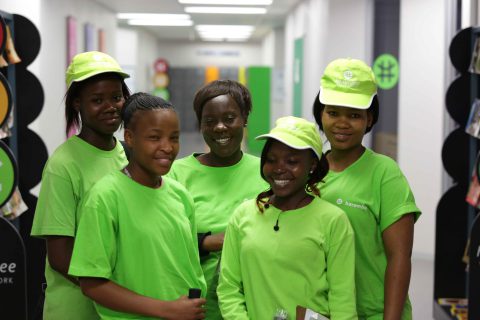Sunday Times Skills PR
How After School Programmes Can Help Learners Overcome Covid-19 Hurdles
Why SA learners can’t afford to lose out on extended learning
Education made a mass move online; a place that the many traditionalists in the sector have previously avoided. This has worked generally to keep teachers teaching and children learning during lockdown and provided new experiences of leveraging technology in education. However, in countries like South Africa where our digital divide is particularly stark and bleak; it has simply deepened the fault lines in our society and left our more vulnerable children even further behind.
Hard lockdown is currently easing in South Africa, and there’s a great urgency to ‘save the academic year’ and get physical schools operating again. This is not particularly challenging to the minority of well-resourced South African schools (quintiles 4 and 5), which have quickly applied COVID-19 safety protocols and got back to classroom teaching and learning, picking up seamlessly from where they were just days ago online. However, the majority of our schools, those classified according to the poverty ranking system as quintile 1, 2 and 3 schools, are grappling daily with the intractable problems of overcrowded classrooms and lack of water and basic sanitation. Without access to tech and data over the past months, these teachers and learners have not had any educational continuity, and even with a trimmed curriculum, they face a monumental backlog under stressed and unsafe conditions.
Mobilising community efforts
Just as charities are at the forefront of the country’s food relief efforts to prevent mass starvation, it’s vital now that there is full and ongoing support for educational NGOs as they work to leave no child behind during the pandemic. According to Sibongile Khumalo, the Executive Director of The Learning Trust, “There is a great need to focus on boosting community-based efforts to implement both proven strategies, like after school programmes, and new innovations that help under-served schools not just meet the DBE’s current mandate but improve post-pandemic outcomes for vulnerable learners. Organisations such as our After School Programme (ASP) partners are well-established in their communities. They are highly valuable reservoirs of local knowledge, expertise and relationships within school communities that can now be moblised for collaborative and meaningful action.”
The Learning Trust (TLT) which is celebrating its 10th anniversary this year, partners with almost 40 community-based educational non-profit organisations across Gauteng, the Western and Eastern Cape Provinces. Through the provision of funding and capacity support to the After-School sector, TLT work to improve educational outcomes of young people living in poverty and exclusion.
Equal access to resources
Research shows that after school programmes, which include tutoring and homework, e-learning, skills-building, sport and arts & culture, can measurably improve learner success in school and help to prevent dropping out, which is unacceptably high in quintile 1, 2 and 3 schools.
“We’ve seen our partner organisations pivot during the COVID-19 crisis to help practically address immediate educational needs,” says Khumalo, “They are playing roles in monitoring sanitation at schools, as well as reaching out to learners who are still at home due to the phased return to school. Digital solutions have had little to no impact in the communities where we operate. Other ways to support learners and include them in catch-up are vital. We also have the incredible task of shaping a post-pandemic world where these children can equally access the resources they need to learn and succeed in our country. The disproportionate ways that young South Africans are experiencing the COVID-19 crisis calls for extraordinary collaborations between government, the NGO sector, education donors and under-served communities to find innovative, and sustainable solutions. Every investment now in improved education opportunities for a child in an under-served community is a step towards better future for all South Africans.”
Supporting the education department with post-COVID-19 recovery
ASPs play a unique and important role in the education sector. TLT partner organisations are currently mobilised in their communities to help school sanitation issues, provide extra-lessons and extra space for schools for social distancing. Many are providing learners who are still at home with learning materials. They also provide psycho-social support to teachers and learners. Incubation camps for academic support are planned, while small-scale after school programmes with social distancing are ready to be resumed. They are active in engaging with schools directly to help them meet very specific needs that are easily overlooked in government planning. “All the while,” Khumalo concludes, “we are interrogating and exploring how our post-COVID world could be much better for the school communities and learners who have always had the odds stacked against them. While we realise that extended learning cannot replace schooling, we believe that the After-School community can make a significant contribution to government efforts. We therefore plan to continue funding organisations so that they are able to sustain themselves. The pandemic has forced change upon the world, but there are ways we can solve systemic problems and truly improve education in South Africa.”






 Sign-up and receive the Business Media MAGS newsletter OR SA Mining newsletter straight to your inbox.
Sign-up and receive the Business Media MAGS newsletter OR SA Mining newsletter straight to your inbox.